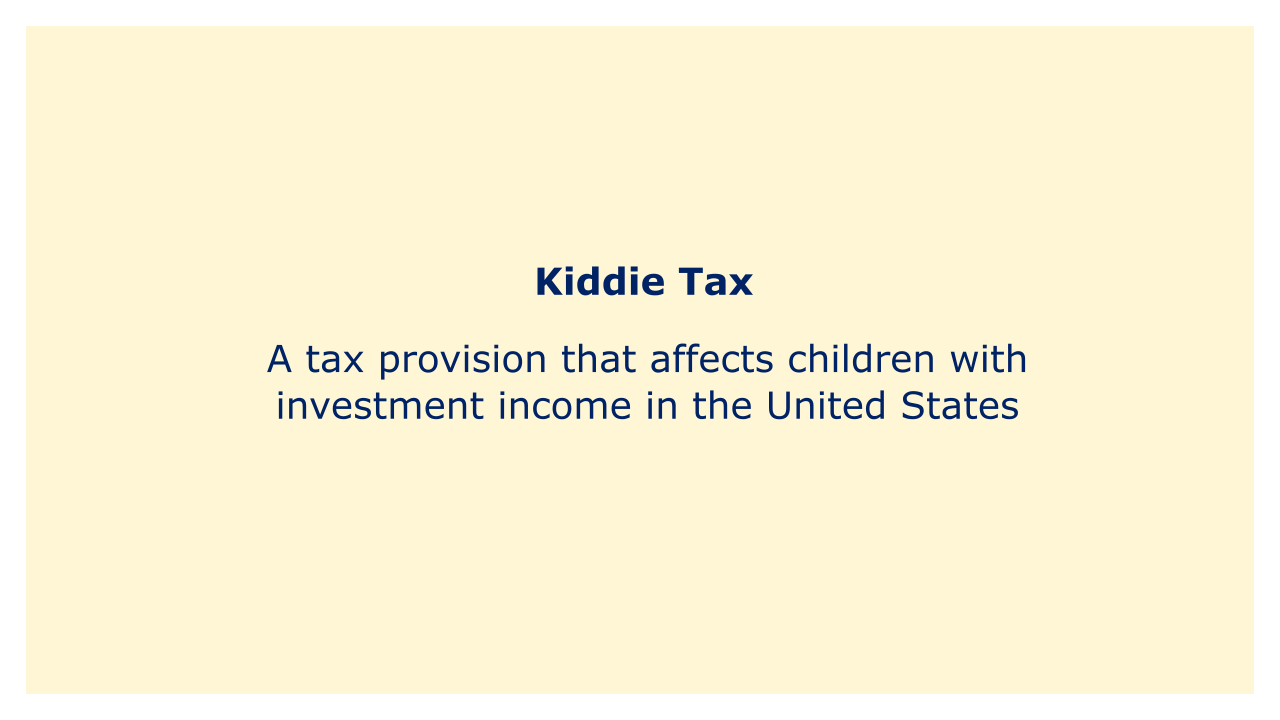 |
| Image: Moneybestpal.com |
Kiddie tax is a word used to refer to a tax provision that affects children with investment income in the United States. A child's investment income that exceeds a specific threshold is subject to the kiddie tax rule, which taxes it at the parent's higher rate rather than the child's lower rate.
The kiddie tax was enacted as a component of the Tax Reform Act of 1986 to stop wealthy families from moving money to their kids who were exempt from paying as much in taxes. Children under the age of 18, kids beyond the age of 18 whose earnings do not exceed half of their support, and full-time students between the ages of 19 and 23 whose earnings do not exceed half of their support, are all subject to the kiddie tax.
Every year, the child tax threshold is raised to account for inflation. The threshold is $2,400 in unearned income for the 2022 tax year. Earned income, such as salary from part-time employment, is exempt from the kiddie tax.
The kiddie tax rule has a few exceptions, including when a child gets married and files a joint tax return or when the child's investment income comes from a qualified disability trust. By making investments on behalf of their children in tax-exempt or tax-deferred accounts, parents may also be able to avoid the kiddie tax.
